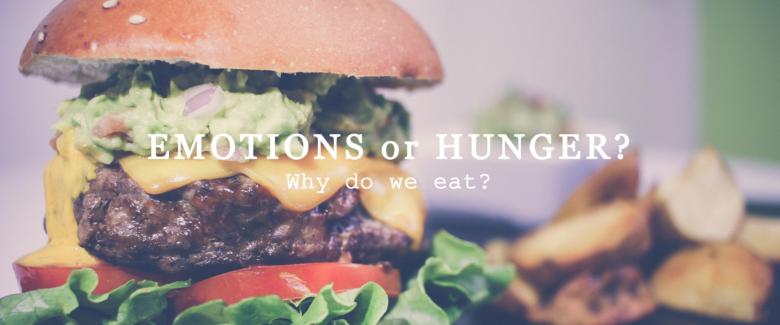Emotions or Hunger?
Out of all of the things that I have learned while on the Fasting Mimicking Diet the most enlightening to me was how much I eat when I am not actually hungry. I found it fascinating how small the amount of food it actually took to make me satiated when I was rationing what I was able to eat each day. By satiated, I mean how much food it took to take away that gnawing feeling that feels like a line of tension from your belly button to your throat.
In our society of abundance, there is always food in the refrigerator or a quick ride down the street when we desire food. If you are like me, you have probably used food to deal with sadness or stress, avoid tasks or issues, fight boredom or, of course, celebrate. So, how do you know if you are eating because you are hungry or eating from emotions and, what can you do about it?
Remember that gnawing sensation I mentioned? That is physical hunger and it comes on gradually where emotional hunger is often sudden.
When you are physically hungry you crave food in general. When you are emotionally hungry you have specific cravings like sweet, salty, crunchy or creamy. Or even more specific than that. Like when my son, Benjamin, had his wisdom teeth removed. While coming out of the anesthesia he had to have “Uncle Shaun’s mashed potatoes”. Nothing else would do. If you feel the only way to satisfy your hunger is with a particular food, it’s probably emotional hunger.
If you eat mindlessly, it is emotional. Corn chips do not agree with me and I am completely aware of that. But when I have returned from a long day and someone (I’m not saying who…Tim) leaves them on the kitchen counter without returning them to the pantry, I find myself waking out of a blank state a half a bag later.
We don’t typically feel guilty or regretful after eating from actual hunger. We do when we eat from emotional hunger. This can become a vicious cycle that contributes to obesity and diabetes.
Eating until you are uncomfortable is another sign of emotional eating. While on the Fasting Mimicking Diet I didn’t have that full to the gills feeling and it was very liberating. Emotional hunger isn’t satisfied until we are stuffed.
Actual hunger has a physical location in the stomach. When the hormone leptin is released from fat stores, hunger is suppressed. When the hormone ghrelin is released it causes stomach rumbling to remind you to eat. Emotional hunger is in our head or even our salivary glands as we think about the food we are craving.
Now that you know what to look for here are 3 powerful tips to control emotional eating:
- Walk. If you are upset, depressed, lonely, bored or anxious, walk. Not only does walking burn off excess cortisol that is released during stress but walking can release endorphins which make you feel better. Not to mention you are not usually in front of temptation if you are taking a walk. It helps you refocus and get your head on straight.
- Plan. Have a game plan. If you know you will be in a situation where you are bound to overeat or emotionally eat. If you are eating at a restaurant look at the menu beforehand and you will have better control over your decisions. Take into account dessert as well. One bite is better than a whole serving which is why splitting dessert may be a better idea. Plan your meals throughout the day instead of reaching for the nearest junk food when you are too hungry to make a wise decision.
- Talk. Talk to a counselor or a therapist who can help you to evaluate and resolve hidden (or not-so-hidden) issues that drive you to overeat. If you can’t bring yourself to do that, at least write in a journal. Write down the behavior that you want to change. List the things that may be causing it and then write what you can do the next time you are triggered. Weight Watchers excels here. They have support groups and a moderator that you can go to that has heard it before if they haven’t actually experienced it themselves. They have found solutions that have worked for them and could possibly work for you.



Planning and walking has always worked for me when I’m in a stressful situation. Sometimes just waiting 20 minutes makes a big difference.
Thanks for the great reminders!!
Thanks Kathy. Great suggestion.